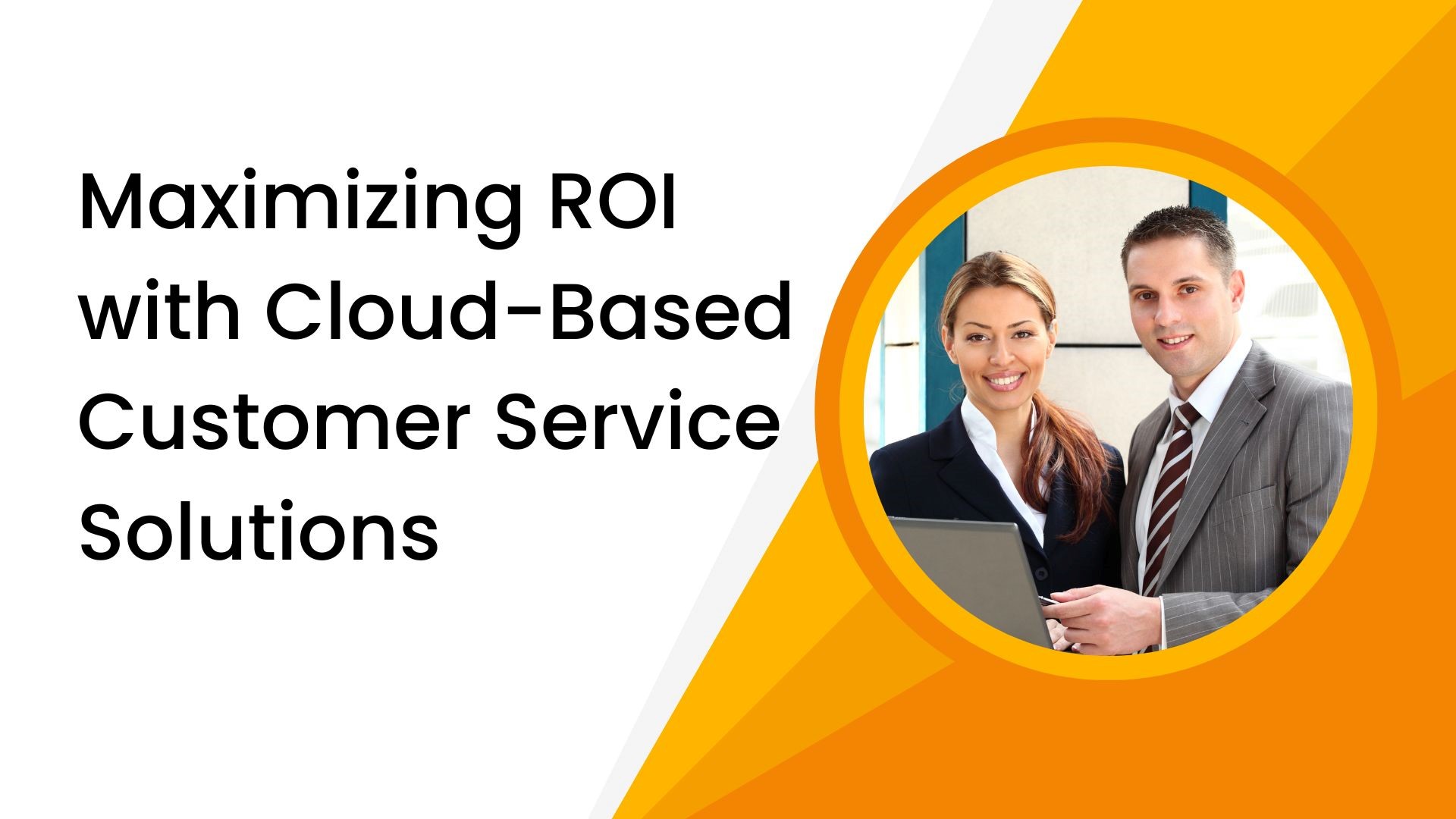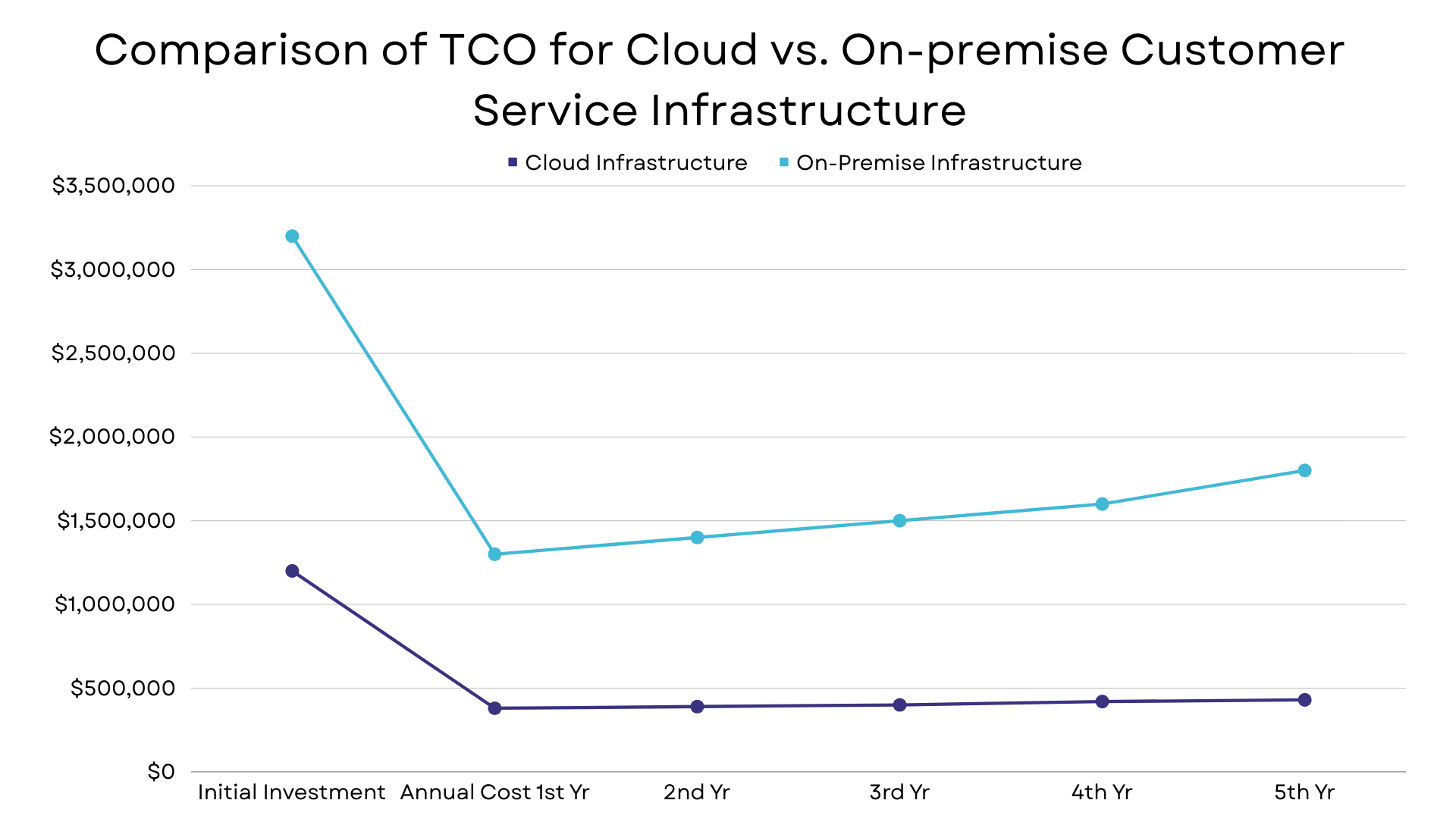
Cloud-based customer service solutions are changing the way businesses interact with customers. Global spending on public cloud services skyrocketed to $332.3 billion in 2021. This represents a 23.1% increase from 2020, as reported by Gartner. Companies must evaluate these solutions’ strategic value and financial benefits. They should also consider the impact on business agility to maximize returns. This article offers detailed strategies for optimizing your cloud investment.
The Strategic Necessity of Cloud-Based Customer Service
Buyers are expecting 24/7 availability and personalized experiences across channels. Instant scalability and flexibility are vital for competitive customer service operations. Cloud-based software provides consistently accessible multi-channel support. They also provide seamless integration capabilities with existing systems. Examples of such systems are CRM and marketing automation.
The following data is from a Nemertes Research study. Almost 74% of companies ranked these factors among the top drivers. That is, for integrating cloud-based customer engagement solutions:
- Omnichannel delivery
- Self-service
- Mobile capabilities
These cloud contact center solutions help users accomplish the following:
- Enable prompt responses to queries
- Provide a consolidated enterprise view of customer interactions via integrated systems
- Minimize hand-offs and data silos
- Enable consistent omnichannel customer journeys
All these elements are essential for optimizing customer experience (CX) and satisfaction.
Additionally, cloud-based solutions use the following for more predictive and proactive service:
- Artificial intelligence (AI)
- Machine learning
- sentiment analysis services
Smart virtual assistants can even handle common repetitive questions. They free live agents to manage more complex issues. Customer service organizations must embed AI in their multichannel customer engagement platform. This approach is projected to enhance operational efficiency by 25%. Gartner predicts this will happen in 2025.
Thus, integrating next-gen cloud-based customer service solutions is now a clear strategic imperative. It will allow contact center as a service companies to maximize business value and ROI. It is not only a cost-saving tactic. Leaders overlooking this face significant competitive risks. They should worry most about diminishing customer loyalty and lost sales opportunities if they fail to grasp this opportunity.
Large Savings and Cost Efficiency from the Cloud
Transition customer engagement infrastructure, data, and applications into cloud environments. It can lower technology expenses and the total cost of ownership. At the same time, it will enable business growth.
As per Forrester’s research, public cloud platforms use server capacity far more effectively. It is estimated at 80% usage, versus less than 50% in typical private data centers. This difference leads to an estimated 53% energy consumption savings. That is when using public cloud infrastructure.
Furthermore, Forbes claims that IT systems and administrative costs are cut by 30%. Organizations need optimized use of on-demand cloud resources and automation. Adopt pay-as-you-go OPEX models instead of large CAPEX investments in on-premise environments. Cloud migration facilitates adjusting capacity dynamically to manage spikes in customer demand. This optimizes spending by paying only for actual cloud services consumed. It covers more than just IT resource overprovisioning.
OPEX spending is expected to be 30-60% less over 5 years. This is in comparison to CAPEX models necessitating upfront infrastructure purchases. This data is according to a Total Economic Impact study by Forrester.
Additionally, cloud platforms lower HR expenses related to infrastructure management by:
- Enabling automation
- Self-service resources
- Reducing the need for specialized IT personnel
Thus, despite data migration expenses, moving to cloud-based customer service is cost-efficient. It also links technology costs to business value. Thus, it is a vital element for maximizing ROI in digital CX investments.
The Cloud Propels Business Agility and Adaptability
Leveraging cloud solutions drives business growth. Per Deloitte, companies using cloud services expand 18.8% faster than competitors.
Their scalability facilitates capacity adjustment. That way, it can manage spikes in customer demand. This trait is especially critical for omnichannel retail. You pay for extra cloud resources as needed instead of procuring more servers.
Their flexibility also facilitates the rollout of innovative customer engagement channels. They do so without lengthy implementations. This positions organizations to respond quickly to market changes – an invaluable advantage.
Moreover, cloud platforms foster collaboration across distributed workforces. This is becoming more vital in hybrid work environments. Customer service teams can share data and updates in real-time, irrespective of their locations.
Thus, incorporating cloud services heightens enterprise agility, adaptability, and productivity. And it directly impacts the bottom line.
A Calculated Strategy for Maximizing Cloud ROI
Simply integrating cloud solutions does not guarantee maximizing ROI. An intentional, business goal-aligned approach is essential.
Assess which systems or data repositories to migrate based on expected benefits. The business case should be rooted in the strategic value the migration will allow.
Additionally, choose cloud service providers based on the following:
- Balancing capabilities
- Reliability
- Security
- Costs depend on your needs
Post-migration, continuously track use, performance benchmarks, and expenditures. Determine if resources are over or under-provisioned. That way, you can optimize efficiency and spending. This guidance is based on insights from PriceWaterhouseCoopers.
Also, regularly upskill customer service teams on optimizing cloud platforms. 94% of companies noticed security improvements after focused cloud training programs.
In essence, these methods will heighten return on investment (ROI):
- Methodically evaluating needs
- Strategically migrating core systems
- Actively maximizing cloud investments
The Future of Customer Service is in the Cloud
Cloud maturity and innovation, reliability, and security are expected to grow in the coming years. Cloud-based customer service platforms will dominate enterprise IT landscapes.
Businesses aiming for customer-centric digital transformations need to integrate cloud-based customer service systems immediately. It is the only way for them to maximize process improvements and cost efficiency. At the same time, it will prepare them for future disruptions. The time to embrace the cloud is unequivocally here and now.
FAQs
What is driving increased cloud adoption in customer service?
Many factors are collectively fueling rapid cloud integration. Examples are accelerating demand for 24/7 services and omnichannel customer experiences. There is also the rising need for the following:
- Flexibility
- Scalability
- Enhanced security
- Faster innovation
- Lower costs
How can the strategic value of cloud solutions be maximized?
- Assess and migrate essential systems/data poised to benefit the most.
- Track use actively post-migration.
- Continuously optimize configurations and expenditures.
- Frequent training of personnel to utilize these dynamic platforms.
All those are key to maximizing strategic cloud advantages.
What risks do you address when shifting customer data/applications to the cloud?
While rare, partial outages could disrupt operations temporarily. Also, despite expanding security capabilities, threats from hacking and data breaches persist. This requires comprehensive prevention strategies. Ensuring failover mechanisms and robust cybersecurity protocols is essential. These are vital when transferring customer data/interactions to the cloud.






